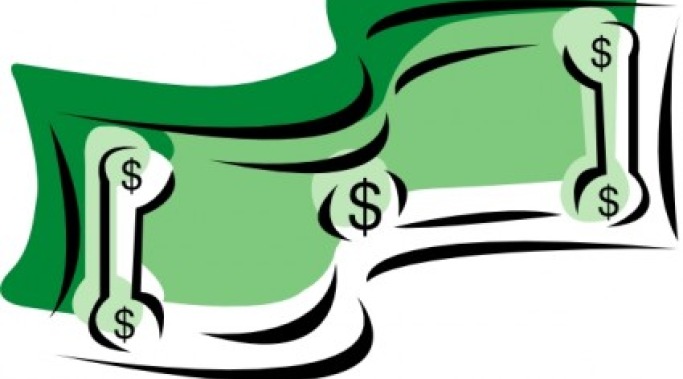We’ve been talking about this for 25 years: the music we here on the radio is free to broadcasters. They pay a royalty to the writers of hit songs but not to the performers. So the thousands of hit records played every day don’t generate money for the stars unless they wrote the songs. Those who didn’t write their songs range from Frank Sinatra and Tony Bennett to Bette Midler and Barbra Streisand, and everyone in between.
Today there’s a campaign going on outside I Heart Radio’s headquarters at Sixth Avenue near Canal Street. Mobile billboard trucks — featuring Dionne Warwick, Sam Moore, and Blake Morgan — are encircling the corporate broadcaster’s NYC offices, calling on billion-dollar broadcaster to pay performers when their songs are played on AM/FM radio.
Dionne’s hits span several decades and include her Bacharach-David songs as well as her later hits in the 80s. Sam’s hits like “Soul Man” and “Hold On I’m Coming” are heard every day around the world but, like Dionne, he doesn’t get a royalty. Only the writers of the songs do.
Legislation has been floated in Congress for years, most recently supported by President Obama, to change this. But the corporate radio entities block it, they pay big bucks lobbying against it.
The trucks will be running all day from 10am to 4pm Eastern.
Here is the Full text of Morgan’s letter
January 26, 2022
Bob Pittman
Chairman and CEO
iHeart Media, Inc.
32 Avenue of the Americas, Fl 2
New York, NY 10013
Dear Mr. Pittman:
I write to you on behalf of the undersigned: over 14,000 music makers and music lovers who have joined together to demand action in the name of basic fairness.
Like many of the signatories below, I’ve been a professional musician nearly all my life. I can claim an accomplished career, but I’m not what most would call a “star.” Few musicians are. Just as in other professions, the vast majority of working professionals in music are similarly middle class and the downward economic pressures we face affect us disproportionately.
The grass-roots #IRespectMusic campaign has grown to become the largest in the history of American Music––a campaign seeking cooperation from iHeart and other American broadcasters to right a century-old wrong. Simply put, it is time artists were paid for radio airplay in the United States. Isn’t being paid fairly for one’s work a bedrock American value?
We 14,000-plus Americans (from every Congressional district in the nation) think it is. Our efforts to raise awareness about this injustice were a driving force that led to the introduction of the American Music Fairness Act – legislation that is poised to right this wrong. We signatories understand the United States is the only democratic country in the world that doesn’t pay artists for radio airplay.
We signatories understand that paying artists for U.S. radio airplay would bring hundreds of millions of dollars back into the U.S. economy that is currently withheld by overseas broadcasters as punishment because U.S. broadcasters refuse to pay for AM/FM radio plays.
If you truly want to support local radio you should endorse the American Music Fairness Act, not oppose it, because the legislation specifically protects small broadcasters: stations grossing less than $1.5 million a year would have their annual royalty payment capped at $500, or $1.37 a day.
The artists among the undersigned have learned the painful lesson that music makers can’t pay their bills with “exposure” or “promotional value” that broadcasters offer in lieu of royalty payments. We understand the bill wouldn’t stifle “innovation,” on the contrary it would encourage it: Rock & Roll is an American innovation. Hip-Hop is an American innovation. Jazz, Blues, Country, Gospel, Bluegrass, and so many others are each distinct American innovations.
iHeart and other broadcasters––which generate billions of dollars in advertising revenue per year by playing our music on your radio stations––have never paid a penny to the artists who make your profits possible.
We’re writing to ask for your help to finally bring an end to this injustice. The times we find ourselves in are changing, rapidly, and Americans know and act on injustice when they see it.
It’s unjust to not pay people for their work while arguing that so-called “promotional value” is enough. By a 2-1 margin now, Americans say they’re more likely to discover music on streaming platforms than from AM/FM radio. Broadcasters’ decades-old “promotion” argument doesn’t even hold up in our modern world. It’s time iHeart and other broadcasters recognize they can no longer freely exploit our hard work for profit.
We hope iHeart can be part of the solution. In that spirit, we come to you with two requests:
- Please take the time to meet with a group of music makers so we can directly explain to you how AM/FM performance royalties would have a profound impact on our lives. We stand ready to meet with you at the date, time, and place of your choosing.
- We also urge you, as a member of the board of iHeart, to speak with your colleagues in the company’s management to help them understand why they are out of step with the nation’s growing desire to see working Americans paid fairly.
If you are willing to meet with a group of music makers, please contact me at blakemorgan@ecrmusicgroup.com. I’m sure as both the CEO and a member of the iHeart board, you strive to make a meaningful impact through your work. This is a tremendous opportunity to do just that, and to do it together. Lots of times we don’t know right from wrong, but lots of times we do, and this is one.
Music is one of the things America still makes that the world still wants. The people who make that music should be paid fairly for their work.
We hope you’ll join us.
Sincerely,
Blake Morgan


